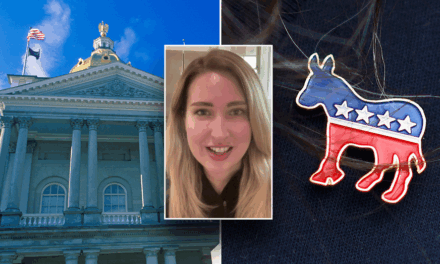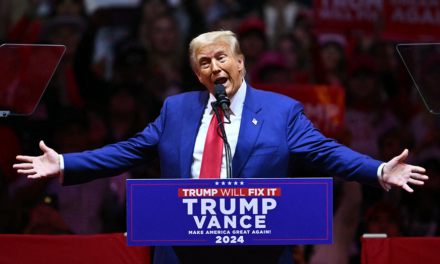In the ever-evolving landscape of American politics, few events reverberate as loudly as a presidential debate. These events are often pivotal moments that can define a candidate’s campaign trajectory and influence public perception. Joe Biden’s recent debate performance, viewed as disastrous by many commentators and critics, has caused significant ripples in the media landscape. One year after this pivotal event, the aftermath sheds light on how his once-loyal media allies began to reconsider their support.
Going into the debate, Joe Biden was seen as a frontrunner in the political arena, bolstered by a solid base and a media landscape that generally favored him. His supporters had envisioned a strong showing that would not only reaffirm his presidential capabilities but also bolster the Democratic narrative leading up to the midterm elections. However, the reality was starkly different. Biden’s performance during the debate was characterized by a series of missteps, faltering responses, and moments of confusion that left many viewers questioning his competency.
As the dust settled in the debate hall, political pundits and analysts began dissecting Biden’s performance, dissecting every moment of his speech and gestures. The immediate aftermath saw headlines that expressed skepticism regarding his ability to lead effectively. Initially, the media stood by Biden, attributing his lackluster performance to the high-pressure environment of a debate. However, as time went on, the tone began to shift.
In the following weeks, Biden’s debate performance transformed from a series of unfortunate misjudgments to the central theme of critique among some media outlets that had previously offered him unwavering support. Editorials that once emphasized Biden’s strengths started to explore his weaknesses, analyzing his debate performance and providing a critical examination of his presidency so far.
This shift in media narrative was not merely a reflection of Biden’s debate performance but also a signal of a broader concern among Democrats about the future viability of his presidency. For many media allies, Biden’s debate snafu foreshadowed underlying issues within the Democratic Party, raising alarms about the perception of leadership heading into the 2024 elections. Concerns grew over Biden’s ability to unify a fractured party and appeal to the broader electorate.
As dissatisfaction started to simmer, many analysts began exploring potential challengers within the Democratic Party. Figures who had previously been sidelined now garnered attention as possible alternative candidates. This environment highlighted the increasingly precarious position Biden found himself in, changing the tone and approach of the coverage being aimed at him.
Critics pointed out that Biden’s approach to communication during the debate seemed unprepared and lackluster, underscoring a sentiment that had grown among constituents — a desire for a leader who could articulate decisive vision and strategy. The debates not only showcased Biden’s weaknesses but also amplified the voices of those who sought a new direction for the Democratic Party.
The long-term implications of Biden’s debate performance rippled through the fabric of political discourse. In the months following, journalists began to employ a more critical lens when examining Biden’s policies and actions. Topics ranging from economic issues to foreign policy were revisited with a more magnified viewpoint, reflecting the discontent that had begun to blossom within the Democratic base. Media allies who once celebrated Biden’s achievements were now scrutinizing his administration’s decisions, and some high-profile commentators were even expressing disappointment over missed opportunities.
This wave of critical analysis prompted much debate within the media sphere. Should journalists remain loyal to a leader who had previously been perceived as an ally or hold him publicly accountable for his shortcomings? Analysts debated the ethics of media coverage, examining the tensions that arise when political allegiances challenge journalistic integrity. The question of how to appropriately cover a sitting president who may not be fulfilling the expectations of his supporters remains central to this discourse.
An unintended consequence of Biden’s debate fallout was the emergence of a more engaged and vocal dissent among his supporters. Discontent began to galvanize grassroots movements, as individuals positioned themselves to advocate for a change within the Democratic Party. In this context, Biden’s relationship with the electorate became increasingly contentious, with many feeling that his leadership style did not align with their expectations for progressive change.
One year later, we see that the lingering effects of that disastrous debate performance have become a defining moment in Biden’s presidency. Not only did it signal a shift in media coverage, but it also marked a turning point in how the general public viewed his capabilities. This narrative illustrated that media alliances are fluid and often reevaluated in response to political realities, suggesting that support is not guaranteed and must be continually earned through effective leadership.
As the next election cycle looms, the implications of Biden’s debate performance will continue to resonate. The evolving media landscape is a testament to the complexities that lie within political endorsement and criticism. Journalists and commentators are left grappling with the responsibility of their roles while navigating the intense scrutiny that comes alongside political legacy. Ultimately, Biden’s journey underscores the fragility of political alliances and how quickly the narrative can turn, forcing leaders to respond and adapt continuously.
In conclusion, Biden’s 2022 debate performance marked a significant inflection point in his presidency, impacting not only his relationship with the media but also shaping the dynamics within the Democratic Party. The transformation from supportive commentary to pointed critique reveals the fluid nature of political support, underscoring that in politics, permanence is a myth. The unfolding months ahead will certainly test Biden’s resolve, showcasing the demand for a leader who can not only navigate the complexities of governance but also inspire confidence in an uncertain political climate.
































